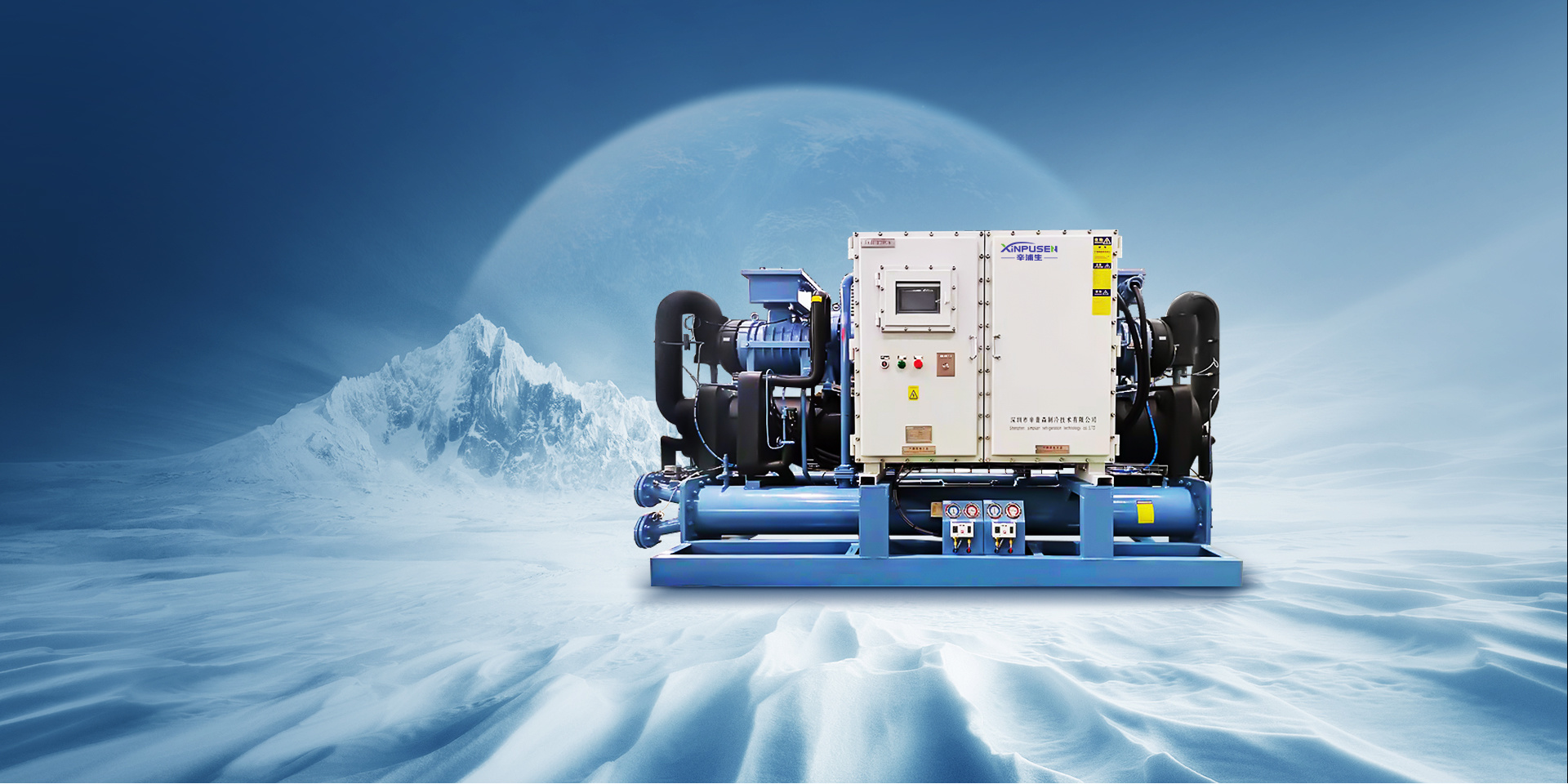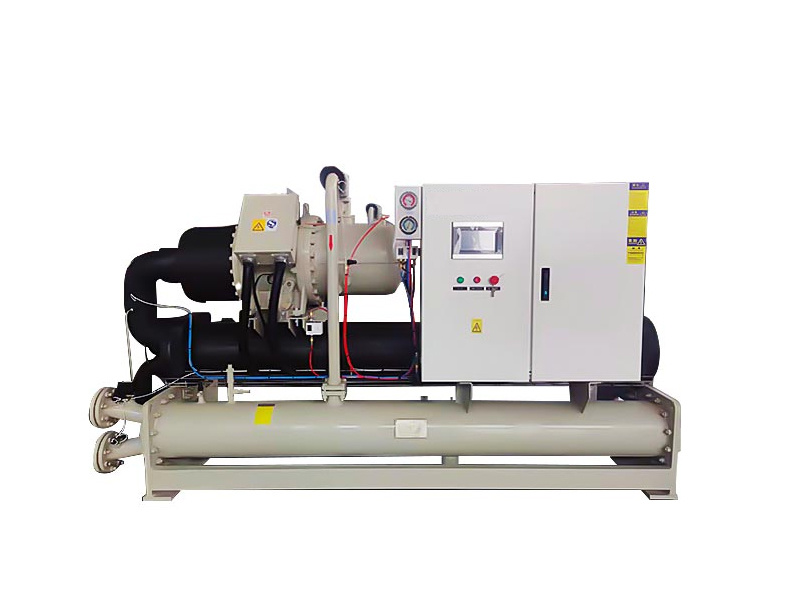Why Variable Frequency Centrifugal Chillers Are Essential for Modern Industry
2025-07-13 17:00
Why Variable Frequency Centrifugal Chillers Are Essential for Modern Industry
Table of Contents
- Introduction to Variable Frequency Centrifugal Chillers
- Understanding the Basics of Chiller Technology
- The Advantages of Variable Frequency Drives in Centrifugal Chillers
- Enhanced Energy Efficiency
- Improved Process Control and Stability
- Reduced Maintenance and Operational Costs
- Applications of Variable Frequency Centrifugal Chillers in Various Industries
- HVAC Systems
- Food and Beverage Industry
- Pharmaceutical and Biotechnology
- Data Centers and IT Facilities
- How to Choose the Right Variable Frequency Centrifugal Chiller
- Determining Cooling Load Requirements
- Evaluating Efficiency Ratings
- Considering Space and Installation Factors
- Future Trends in Chiller Technology
- FAQs about Variable Frequency Centrifugal Chillers
- Conclusion
Introduction to Variable Frequency Centrifugal Chillers
In contemporary industrial applications, the need for effective cooling solutions has never been more critical. Among these, **Variable Frequency Centrifugal Chillers** stand out as a pivotal technology. They offer an advanced approach to managing cooling needs, which is essential for operational efficiency and sustainability. These chillers utilize variable frequency drives (VFDs) to control their compressor speed, bringing forth significant benefits in energy consumption and system longevity.
Understanding the Basics of Chiller Technology
Chillers play a vital role in cooling systems across various industries. They work by removing heat from a liquid via a vapor-compression or absorption refrigeration cycle. Traditionally, centrifugal chillers have been favored for their ability to provide large cooling capacities efficiently. With the integration of variable frequency drives, these systems have evolved to adapt dynamically to changing cooling demands.
The Mechanism of Variable Frequency Drives
Variable Frequency Drives allow the compressor motor to operate at varying speeds, as opposed to the traditional method of running at full capacity at all times. This method not only improves energy efficiency but also enhances the overall performance of the cooling system, leading to a more consistent and stable temperature control.
The Advantages of Variable Frequency Drives in Centrifugal Chillers
The integration of VFDs in centrifugal chillers brings forth a multitude of advantages that are critical for modern industrial operations.
Enhanced Energy Efficiency
One of the most significant benefits of Variable Frequency Centrifugal Chillers is their enhanced **energy efficiency**. By adjusting the compressor speed according to the cooling load, these chillers can drastically reduce energy consumption. Reports indicate that employing VFDs can lead to energy savings of up to **30-50%** compared to traditional fixed-speed chillers. This not only lowers operational costs but also contributes to a greener environment by reducing carbon emissions.
Improved Process Control and Stability
Variable frequency chillers provide superior process control. The ability to modulate cooling output means that temperature fluctuations are minimized, ensuring that sensitive processes remain stable. This precise control is especially beneficial in industries such as pharmaceuticals and biotechnology, where environmental conditions must be tightly regulated.
Reduced Maintenance and Operational Costs
With fewer mechanical stresses due to variable speeds, VFD-equipped chillers typically experience less wear and tear. This leads to reduced maintenance requirements and longer equipment lifespan. Additionally, a decrease in operational costs can be achieved through lower energy bills and fewer repair expenses over time.
Applications of Variable Frequency Centrifugal Chillers in Various Industries
The versatility of Variable Frequency Centrifugal Chillers allows them to serve a wide range of industries effectively.
HVAC Systems
In **Heating, Ventilation, and Air Conditioning (HVAC)** systems, these chillers are instrumental in maintaining optimal indoor climate conditions. Their ability to adapt to varying loads means that they can efficiently serve both large commercial buildings and small facilities.
Food and Beverage Industry
In the **food and beverage sector**, maintaining specific temperatures is crucial for product quality and safety. Variable Frequency Centrifugal Chillers provide precise cooling, ensuring that production processes comply with health regulations and standards.
Pharmaceutical and Biotechnology
The **pharmaceutical industry** relies heavily on controlled environments for the production and storage of sensitive materials. These chillers are essential for maintaining the stringent temperature requirements necessary for drug manufacturing and research.
Data Centers and IT Facilities
As data centers generate significant heat, effective cooling is vital. Variable Frequency Centrifugal Chillers offer a scalable cooling solution that can accommodate the fluctuating demands of IT infrastructures, ensuring optimal performance and uptime.
How to Choose the Right Variable Frequency Centrifugal Chiller
Selecting the appropriate chiller is crucial for maximizing efficiency and performance.
Determining Cooling Load Requirements
The first step in choosing a Variable Frequency Centrifugal Chiller is to accurately determine your **cooling load requirements**. This involves assessing your facility’s specific cooling needs based on factors such as equipment heat output, building size, and occupancy levels.
Evaluating Efficiency Ratings
When selecting a chiller, it’s essential to evaluate its efficiency ratings. Look for models with high **Coefficient of Performance (COP)** and **Energy Efficiency Ratio (EER)** values, which indicate superior energy performance.
Considering Space and Installation Factors
Space constraints and installation requirements should also be factored into the decision-making process. Evaluate whether the chiller will fit within your facility’s existing infrastructure and consider any necessary modifications to accommodate the unit.
Future Trends in Chiller Technology
As technology advances, the future of Variable Frequency Centrifugal Chillers looks promising. Innovations in smart technology, such as remote monitoring and predictive maintenance, are set to enhance operational efficiency further. Additionally, the integration of eco-friendly refrigerants will contribute to sustainability goals.
FAQs about Variable Frequency Centrifugal Chillers
1. What is a Variable Frequency Centrifugal Chiller?
A Variable Frequency Centrifugal Chiller is a cooling system that uses variable frequency drives to adjust the compressor speed, improving efficiency and performance.
2. How much energy can I save with a Variable Frequency Centrifugal Chiller?
You can save **30-50%** on energy costs compared to traditional fixed-speed chillers, depending on usage patterns and load variations.
3. What industries benefit most from Variable Frequency Centrifugal Chillers?
Industries such as HVAC, food and beverage, pharmaceuticals, and data centers benefit significantly due to their need for precise temperature control.
4. Are Variable Frequency Centrifugal Chillers more expensive to install?
Initial installation costs may be higher, but the long-term savings on energy and maintenance often outweigh these upfront expenses.
5. How do Variable Frequency Drives improve process control?
VFDs allow chillers to adjust their cooling output dynamically, minimizing temperature fluctuations and ensuring stable operational conditions.
Conclusion
Variable Frequency Centrifugal Chillers are not merely an option but a necessity for modern industries aiming for efficiency, cost savings, and sustainability. Their ability to adapt to changing cooling demands while providing exceptional energy efficiency and reliability makes them an indispensable asset. As industries continue to evolve, embracing such advanced technologies will be critical for maintaining a competitive edge in the market. Investing in a Variable Frequency Centrifugal Chiller today is a strategic move towards a more efficient and sustainable future.
Previous: china variable frequency centrifugal chiller
More Information
2026-03-02
Understanding the Advantages of Water-Cooled Screw Chillers for Industrial Applications
2026-02-24
quality air cooled industrial chiller
2026-02-23
Essential Insights into Air Cooled Industrial Chillers: Efficiency, Selection, and Maintenance
2026-02-16
What to Expect During the Installation of Air Cooled Industrial Chillers: A Comprehensive Guide
2026-03-02
Understanding the Advantages of Water-Cooled Screw Chillers for Industrial Applications









 CN
CN EN
EN


